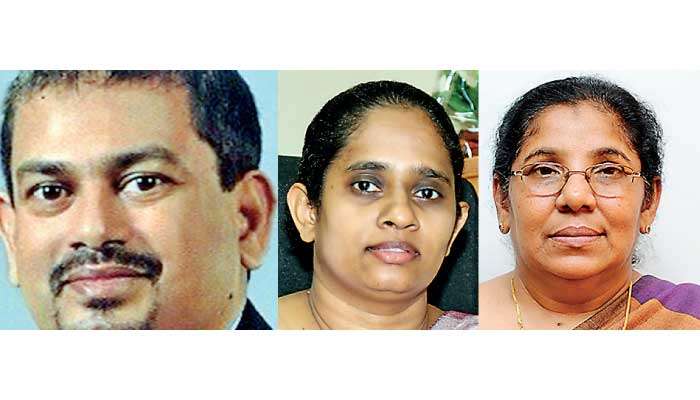The key step in an academic career is the acquisition of tenure. Tenure was created to foster academic freedom, protecting faculty who venture into controversial territory from dismissal. As it stabilizes an academic’s position, tenure is a major university commitment that is not taken lightly. Those who assess professors preparing to become tenured rely heavily on letters of reference from the candidate’s colleagues.
When evaluating faculty members whose primary focus is research, universities typically solicit at least six external tenure review letters, usually from established members in the applicant’s research area. Despite the importance of these letters in the tenure process and their strong influence on a colleague’s future, little guidance is provided on what the reviewer should write. Tenure-track faculty should also be aware of what is in these letters for career development purposes.
Am I eligible to write the letter?
If you have been asked to write a tenure review letter, either the candidate has suggested you or the departmental tenure review committee has identified you as an active researcher in the candidate’s field. If you feel that your area of expertise does not match that of the candidate, you should consider declining the application.
Your assessment of the candidate must be fair and unbiased. You should decline the application if you have a relationship with the candidate that could be perceived as a conflict of interest. Parents, close friends, significant others, and former supervisors or mentors of the candidate should not be involved in the assessment of the candidate’s tenure.
Other conflicts of interest include past or planned research collaborations, such as co-authored articles or grants. If you have a long-standing disagreement or personal conflict with the candidate that may skew your assessment, you should consider declining.
Some universities are more flexible regarding the candidate’s past collaborations. For example, a letter from someone who co-authored an article more than five years ago may be acceptable. If you’re unsure whether your relationship or qualifications prevent you from writing the letter, it’s a good idea to explain the situation to the person who made the request.
Finally, make sure you have enough time to complete the letter before the deadline. Depending on how well you know the candidate, reviewing their resume, research papers, and academic activities may take some time. Advise the committee if this is a concern, as it may delay or jeopardize consideration of the candidate’s tenure application.
What should I include in the letter?
Along with the candidate’s resume, the tenure committee chair will likely send information about what should be included in your cover letter. (If not, feel free to ask.) If the requested items are not listed below, be sure to address them.
Generally, you don’t want to burden the tenure committee with redundant or irrelevant information. Try to limit the letter to one or two pages and avoid summarizing the candidate’s CV, as it will be included in the candidate’s file.
Your letter should explicitly state whether you support the candidate for tenure and provide a concise rationale for this decision. As universities differ in their rigor for tenure, your recommendation should be based on the criteria used by the candidate’s university.
To simplify the structure of the letter, divide it into three main blocks. Use the first block to briefly introduce yourself, highlighting how you know the candidate and why you are qualified to assess their impact on the ground.
The second block is an objective assessment of the candidate’s contributions to the field. This may include discussions highlighting key publications, presentations or grants.
Avoid making a long list of accomplishments; instead, give your expert opinion on the candidate’s work. Is it high quality? Is it pioneering or innovative? Has he changed paradigm? Have they developed a new technique or model system? Will their work have a lasting impact that will move the field forward? Is there anything special that makes this candidate stand out from their peers?
Keep in mind that the various committees and stakeholders that review the nominee’s file are not experts in the nominee’s field, and some may not be scientists. A tenure letter is not the place to go into technical details regarding the candidate’s area of research. Additionally, reviewers may not be familiar with the importance of the work, the quality of the journals, or the prestige of presenting at scientific conferences, so be sure to add context to their accomplishments.
If applicable, the second block is also a good place to mention the nominee’s achievements in other areas relevant to academia, namely teaching and service. Letter writers can highlight signature contributions to teaching and mentoring. Areas of service that are particularly important to mention include editorial boards or grant review committees, as a strong reputation in the field is a prerequisite for these positions.
It may also be useful to include modern measures (alternative measures or altmetrics) of the candidate’s performance to highlight their growing stature as an academic. These altmetrics could include social media platforms, media appearances, Google Scholar citations, page views/downloads, and number of articles written “beyond journals” in publications like ASBMB Today.
The third block should discuss the candidate’s future prospects. If you feel it is necessary, start this block with constructive comments that mention areas the candidate should focus on for improvement. Well-meaning advice not only helps the candidate’s future endeavours, but also underscores the authenticity of the positive remarks in your letter. End this block with your expert prediction of the candidate’s ability to succeed and remain productive.
Universities want to be sure that granting tenure will not foster complacency; they want to hear that the nominee has a genuine passion and enduring drive to innovate and become a world-renowned leader in their field.
Be sure to conclude your letter with a clear statement indicating whether you support the tenure candidate. If not, it would be helpful to provide an additional sentence indicating what would change your mind.
Tenure review letters should be kept confidential, but keep in mind that the candidate will likely be made aware of the contents of your letter either in redacted form or as part of a summary prepared by the tenure committee. It’s a good idea to stay professional and avoid writing reviews that you wouldn’t be comfortable telling the candidate in person.
 Xing Wu
Xing Wu



